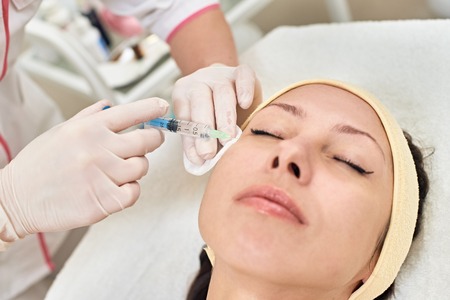1. Introduction to Celebrity Endorsements in the UK Cosmetic Industry
The UK cosmetic clinic sector has witnessed a significant rise in the use of celebrity endorsements, marking a distinct shift in marketing strategies over the past decade. British consumers are increasingly exposed to celebrities—whether television personalities, social media influencers, or well-known public figures—championing the latest aesthetic treatments and non-surgical procedures. This phenomenon is not merely about borrowing fame; it is deeply rooted in the UK’s unique celebrity culture, which places high value on authenticity, relatability, and aspirational lifestyles. Unlike other markets where endorsements may focus solely on glamour or unattainable ideals, UK campaigns often leverage celebrities who resonate with everyday people and whose personal transformations appear achievable. As cosmetic clinics compete for market share in a rapidly growing industry, celebrity endorsements have become a powerful tool to build trust, influence perceptions of safety and efficacy, and ultimately drive patient choice. These trends highlight both the prevalence and distinctive characteristics of celebrity-driven marketing within the British cosmetic landscape.
2. Mechanisms of Influence: How Celebrities Shape Consumer Perceptions
In the UK, celebrity endorsements significantly impact how consumers perceive and choose cosmetic clinics. This influence is driven by a complex interplay of psychological and sociocultural factors unique to British society. Understanding these mechanisms is crucial for clinics aiming to leverage star power effectively.
Psychological Factors Behind Celebrity Trust
British consumers often associate celebrities with success, beauty, and social status. When a well-known figure endorses a clinic, it can trigger several psychological responses:
| Psychological Trigger | Description | Example in UK Context |
|---|---|---|
| Social Proof | The tendency to follow the choices of others, especially those perceived as high-status. | A reality TV star’s endorsement leads to increased bookings at their chosen London clinic. |
| Parasocial Relationships | The emotional connection fans feel towards celebrities, creating an illusion of friendship or trust. | Fans of a British singer may seek treatments from the same clinic she promotes on Instagram. |
| Aspirational Identity | The desire to emulate the lifestyles and appearances of admired personalities. | Younger consumers opt for “influencer-inspired” treatments advertised by UK-based celebrities. |
| Perceived Credibility | The belief that if a celebrity trusts a clinic, it must be reputable and safe. | A respected actress’s testimonial reassures hesitant clients about trying new procedures. |
Sociocultural Drivers in the British Context
Celebrities in the UK are not just style icons; they also reflect prevailing cultural trends and values. The following sociocultural factors amplify their influence:
- Cultural Relevance: Endorsements by home-grown talent resonate more deeply, as British consumers value relatability and shared cultural identity.
- Media Landscape: The prevalence of reality TV and tabloid culture magnifies the visibility of celebrity-endorsed clinics, making them household names.
- Changing Attitudes Towards Cosmetic Procedures: Increased openness and destigmatisation—often led by public figures—encourage wider acceptance among diverse demographics.
- Peer Influence: Recommendations spread rapidly within friend circles and online communities, further solidifying the link between celebrity choices and consumer action.
The Resulting Impact on Clinic Selection Behaviour
This fusion of psychological triggers and sociocultural drivers results in a distinctive pattern: British consumers are more likely to select cosmetic clinics endorsed by celebrities they admire or identify with. As such, clinics seeking to grow their client base should carefully consider strategic partnerships that align with both market trends and the nuanced preferences of UK clientele.
![]()
3. Trends in British Celebrity Partnerships with Cosmetic Clinics
Within the UK, celebrity endorsements have evolved beyond mere product placement to become sophisticated collaborations tailored to local sensibilities. The British public has a distinct relationship with fame, often favouring understated elegance over overt glamour, which is reflected in the types of personalities chosen for cosmetic clinic partnerships. For instance, well-known figures such as TV presenters, reality stars from “Love Island”, and popular influencers on platforms like Instagram are frequently approached by clinics aiming to tap into their loyal UK-based followings. This trend is exemplified by clinics collaborating with personalities who embody relatable beauty standards and authenticity, as opposed to unattainable perfection.
Emerging trends include not only traditional advertising but also co-created campaigns where celebrities document their personal treatment journeys. Transparency is highly valued; British audiences respond positively to open discussions about procedures rather than vague hints or heavily filtered before-and-after shots. Another notable trend is the use of micro-influencers—individuals with smaller yet highly engaged UK audiences—who lend credibility and foster trust within specific regional communities.
Cultural nuances also play a significant role. The UKs regulatory environment encourages clinics and celebrities alike to emphasise safety, professionalism, and realistic outcomes in their messaging. Endorsements are increasingly focused on natural enhancements rather than dramatic transformations, aligning with British preferences for subtlety and refinement. As the landscape continues to shift, successful cosmetic clinics adapt their celebrity partnerships to resonate with evolving local tastes while maintaining compliance and ethical transparency.
Impact on Clinic Reputation and Patient Decision-Making
In the UK, celebrity endorsements play a pivotal role in shaping public perceptions of cosmetic clinics. The association with high-profile figures can significantly elevate a clinic’s reputation, making it appear more credible and trustworthy in the eyes of potential clients. British consumers often value authenticity and transparency, so when celebrities openly discuss their positive experiences or results from a particular clinic, it can greatly influence both brand trust and the decision-making process for prospective patients.
Clinic Credibility: The Celebrity Effect
Endorsements from well-known personalities often act as a form of social proof. For many Britons, seeing a favourite TV presenter or influencer vouch for a clinic provides reassurance regarding the quality and safety standards of that establishment. As the cosmetic industry in the UK is highly regulated, clinics associated with reputable celebrities are frequently perceived as adhering to higher standards of professionalism and care.
Brand Trust and Consumer Choice
The impact of celebrity endorsement extends to brand trust, influencing consumer behaviour across various demographics. Younger clients may be swayed by trending influencers on platforms such as Instagram, while older demographics might respond more favourably to established public figures. This effect is particularly pronounced in metropolitan areas like London, Manchester, and Birmingham, where competition among clinics is fierce.
Comparative Impact Table: Celebrity Endorsements vs Traditional Marketing
| Factor | Celebrity Endorsement | Traditional Marketing |
|---|---|---|
| Clinic Credibility | High (boosted by celebrity association) | Moderate (dependent on message clarity) |
| Brand Trust | Enhanced through perceived authenticity | Built over time through consistent messaging |
| Consumer Choice Influence | Immediate and impactful, especially among younger demographics | Gradual effect, reliant on repeated exposure |
| Cultural Relevance (UK context) | Strong when aligned with British values and local celebrities | Varies based on campaign targeting and execution |
The table above illustrates how celebrity endorsements often outperform traditional marketing strategies in building immediate credibility and trust within the UK cosmetic clinic sector. However, the effectiveness largely depends on the alignment between the endorser’s image and British cultural values. Ultimately, celebrity-backed recommendations serve as a catalyst for patient enquiries and bookings, underlining their importance in the evolving landscape of UK aesthetic medicine.
5. Risks and Ethical Considerations
While celebrity endorsements have become a powerful marketing tool for cosmetic clinics in the UK, they also introduce a series of risks and ethical challenges that must be addressed. The British beauty industry operates within a strict regulatory framework, primarily governed by the Advertising Standards Authority (ASA) and the General Medical Council (GMC). These bodies set clear guidelines to ensure that promotional content is not misleading and that public safety is prioritised.
Regulatory Issues
The use of celebrities in advertising medical or cosmetic procedures is closely scrutinised in Britain. The ASA prohibits adverts that exaggerate results or exploit vulnerable individuals’ insecurities. Furthermore, endorsements must be genuine; celebrities are required to have actually used the products or services they promote. Clinics failing to comply with these regulations risk substantial fines, reputational damage, and even legal action.
Potential Pitfalls
One significant pitfall lies in the potential for misinformation. Celebrity endorsements can sometimes create unrealistic expectations about outcomes, especially when photo editing or selective testimonials are involved. This disconnect between promise and reality not only undermines consumer trust but also places clinics at legal risk if patients are dissatisfied with their results.
Ethical Challenges
Ethically, leveraging celebrity influence raises questions around informed consent and psychological wellbeing. There is concern that endorsements may pressure individuals—particularly younger demographics—into undergoing unnecessary procedures. Additionally, it is crucial for clinics to maintain transparency about risks, recovery times, and costs, rather than focusing solely on glamorous outcomes highlighted by celebrity figures.
In summary, while celebrity-backed campaigns can drive client interest and business growth for cosmetic clinics across the UK, careful attention to regulation, accuracy, and ethical responsibility is essential. Failing to do so not only jeopardises individual clinics but could also erode public confidence in the sector as a whole.
6. The Future Outlook for Celebrity-Clinic Collaborations in the UK
As the UK’s cosmetic clinic sector continues to evolve, celebrity endorsements are set to play an increasingly sophisticated role in shaping consumer behaviour. Looking ahead, several key trends and predictions are likely to define the next chapter of celebrity-clinic collaborations.
Shift Towards Authenticity and Transparency
British consumers are becoming more discerning, demanding authenticity from both celebrities and clinics. Future partnerships will likely focus on genuine testimonials and transparent documentation of procedures, moving away from overtly polished marketing. Clinics may prioritise working with celebrities who openly discuss their aesthetic journeys, fostering trust among potential clients.
Rise of Micro-Influencers and Niche Celebrities
The landscape is expected to diversify beyond traditional A-list celebrities. Micro-influencers and niche personalities—such as reality TV stars or respected figures within specific communities—are poised to gain influence. Their relatability and targeted audiences can drive more personalised clinic recommendations, resonating strongly within local markets across the UK.
Integration of Digital Platforms and Emerging Technologies
With British consumers highly engaged on social media platforms like Instagram, TikTok, and YouTube, clinics will increasingly harness these channels for dynamic collaborations. Expect a surge in live procedure streams, interactive Q&As, and augmented reality filters featuring celebrity ambassadors. Such innovations will create immersive experiences that bridge the gap between digital engagement and physical clinic visits.
Greater Regulatory Scrutiny
The UK’s regulatory bodies are tightening guidelines around advertising standards and ethical promotion. Future celebrity endorsements must comply with stricter disclosure requirements, ensuring that all paid partnerships are clearly identified. This heightened scrutiny aims to protect consumers from misleading claims while reinforcing industry credibility.
Sustainability and Ethical Influencing
The growing emphasis on sustainability and corporate responsibility is also influencing the cosmetic sector. Celebrities who champion ethical beauty practices—such as cruelty-free products or environmentally conscious clinics—will align with shifting public values. This alignment is likely to influence both consumer choices and industry standards in the years ahead.
In summary, the future of celebrity-clinic collaborations in the UK promises greater authenticity, technological innovation, broader influencer representation, tighter regulation, and enhanced ethical considerations. These developments will redefine how British consumers perceive and select cosmetic clinics, signalling a dynamic new era for both endorsement strategies and patient engagement.

